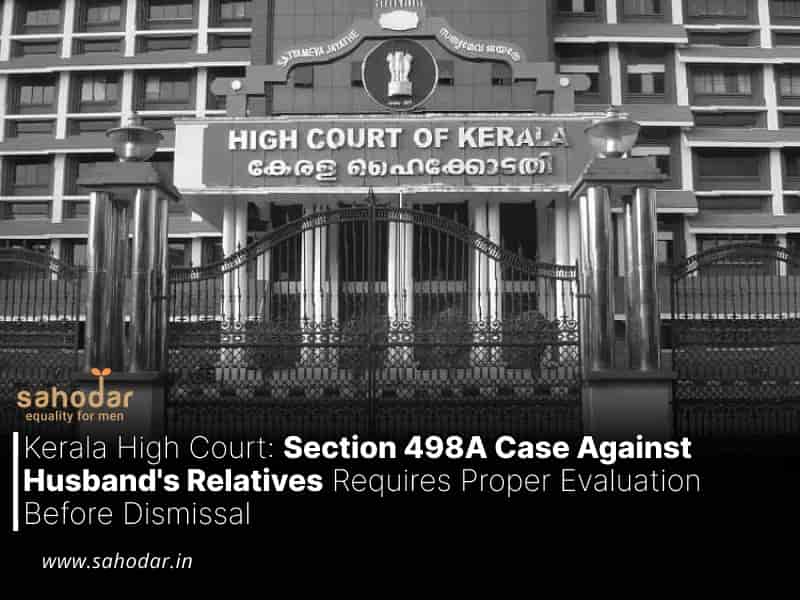The Court said that while sweeping allegations against the husband’s in-laws will not stand, such allegations must be examined on a case-to-case basis rather than viewing them as false as a thumb rule.
The Kerala High Court recently noted that generalized allegations of cruelty by a married woman against her in-laws do not automatically invoke criminal liability under Section 498A of the Indian Penal Code (IPC). However, such claims cannot be dismissed outright as a standard practice [V Karthyayani v State of Kerala & Anr].
The Court stressed the importance of evaluating each Section 498A case individually, based on its specific facts and circumstances.
Justice A. Badharudeen made these remarks while declining to quash criminal proceedings under Section 498A of the IPC (cruelty to a married woman) against the relatives of a married woman’s estranged husband.
The Court recognized a prevailing tendency to implicate the relatives of estranged husbands in Section 498A cases by making broad and generalized allegations of cruelty.
The judge further noted that such vague and sweeping accusations are insufficient to substantiate a Section 498A case. In such instances, the High Court has the authority to quash the case before it proceeds to trial.
The situation changes when the allegations against the accused husband’s relatives are specific. In such instances, the case must proceed to trial, and the High Court cannot intervene to quash the proceedings at a preliminary stage.
“It is noticed that the relatives of the husband being roped into prosecution alleging commission of offence under Section 498A of the IPC on the basis of general allegations without specifying the over acts with certainty. At the same time, it is not possible to lay down a ratio that allegations against the relatives of the husband generally to be viewed as false as a thumb rule and to drop proceedings against them, without addressing the allegations. In fact, the allegations should be evaluated in a case to case basis,” the Court held.
Not possible to lay down a ratio that allegations against the relatives of the husband generally to be viewed as false as a thumb rule.
Kerala High Court
The case before the Court stemmed from a matrimonial dispute between a husband and wife who were married in 2005.
Subsequently, the wife filed a cruelty complaint against her husband and in-laws.
She alleged that her husband, upon returning from his job in the Gulf, physically assaulted her while intoxicated. She further claimed that her mother-in-law and brother-in-law attempted to evict her from the house built by her husband. Additionally, she stated that her husband pressured her to transfer ownership of the house to his mother.
The dispute escalated when the husband transferred the property to his mother’s name before returning to the Gulf. The woman stated that she could remain in the house with their child only due to the intervention of the State police’s Vanitha Cell (women’s cell).
Subsequently, the in-laws approached the High Court seeking to quash the case against them, contending that the allegations were vague and lacked specific details.
The Court, however, disagreed and determined that the allegations against the accused in-laws were specific and detailed. It held that such accusations could not be dismissed solely because they involved the husband’s relatives. The Court concluded that a prima facie case existed against the in-laws, warranting a trial.
“Where the allegations are specific against the relatives of the accused, trial is necessary, and quashment prayer would necessarily fail,” it said.
As a result, the Court rejected the plea filed by the woman’s in-laws and instructed them to stand trial.

